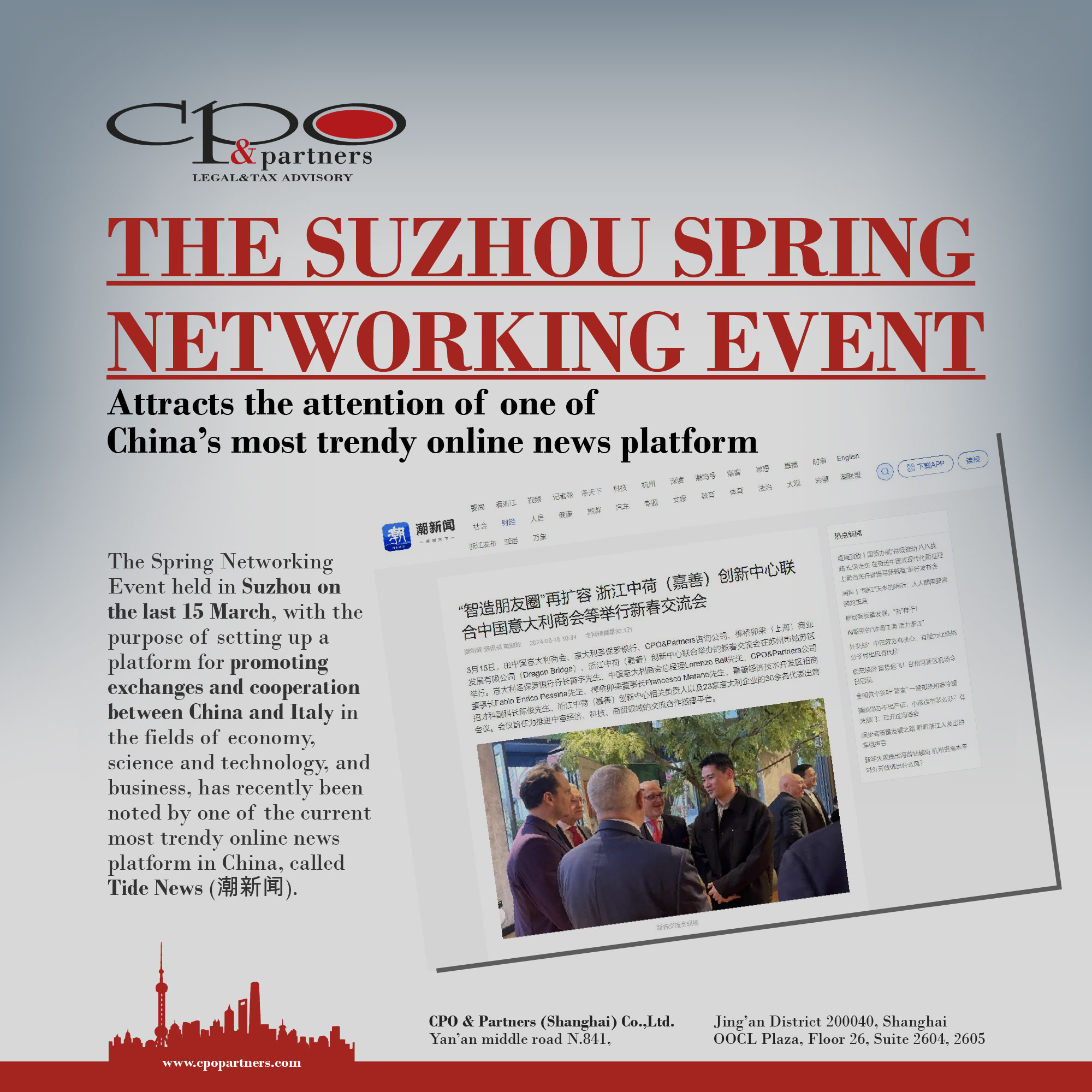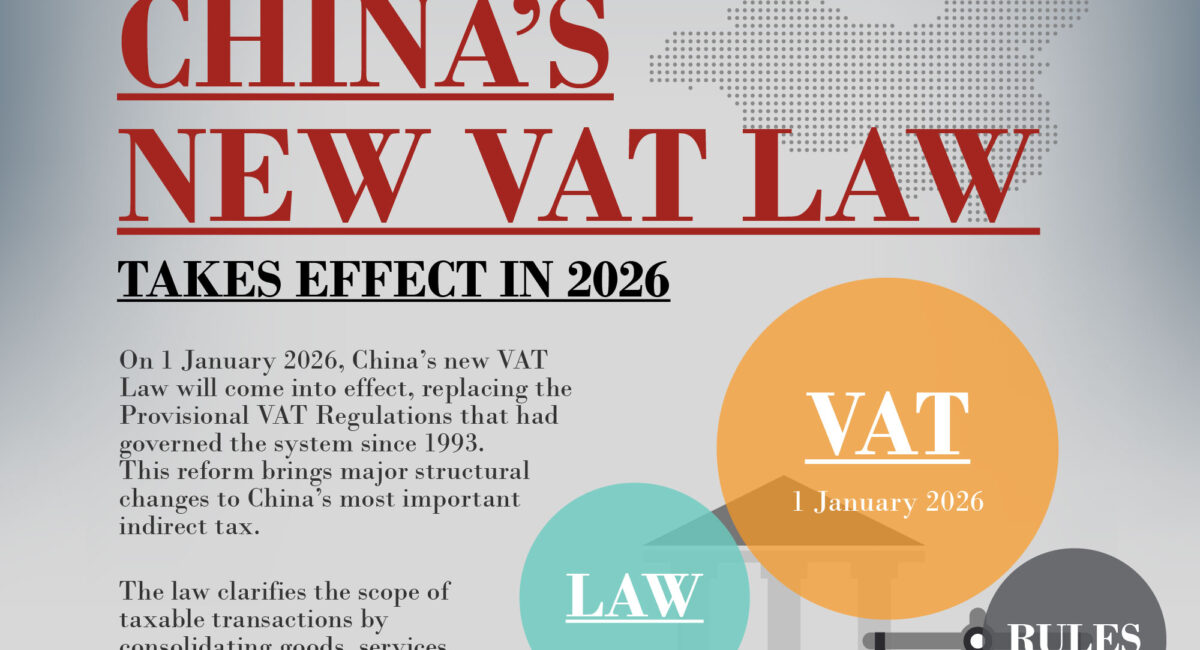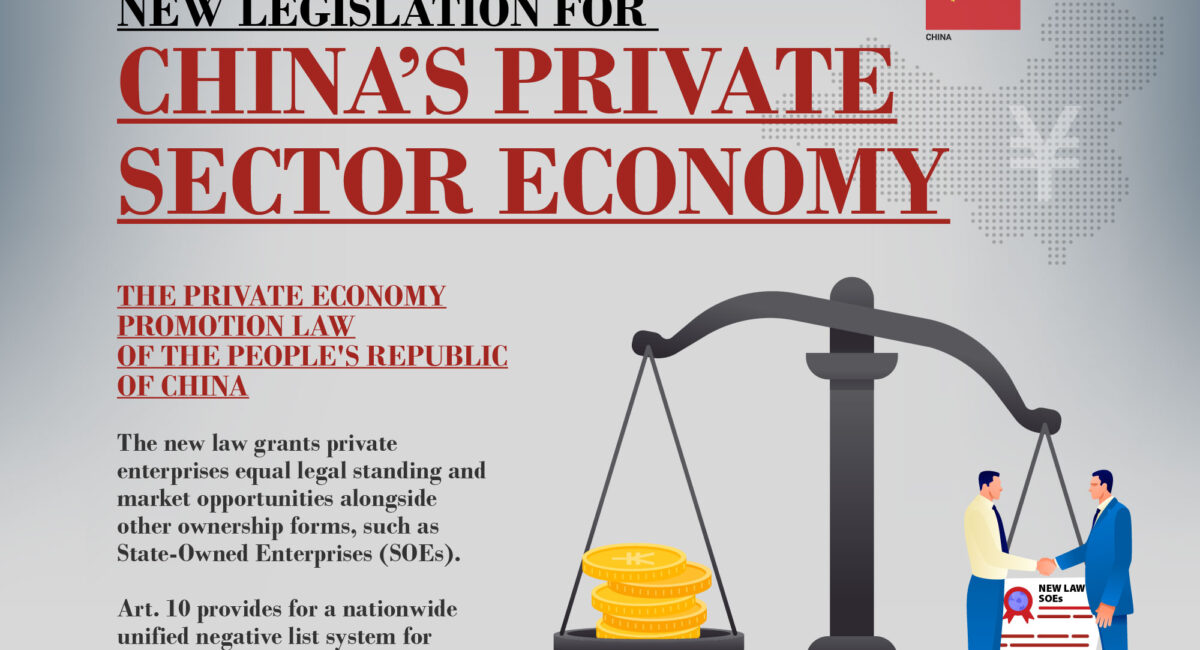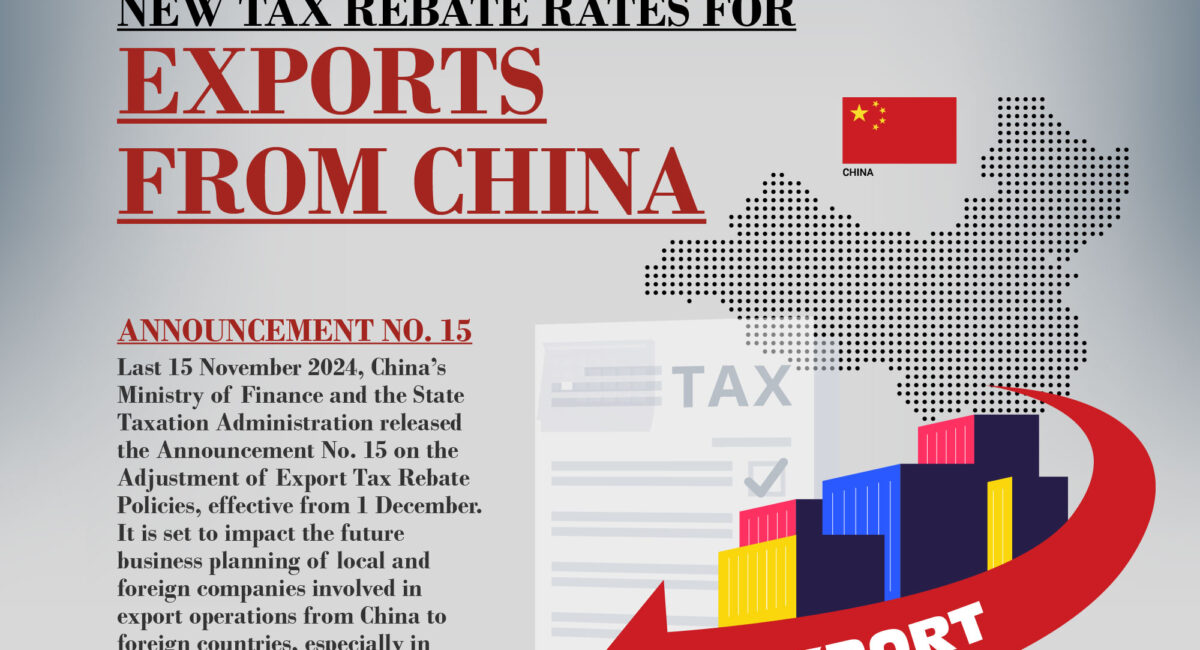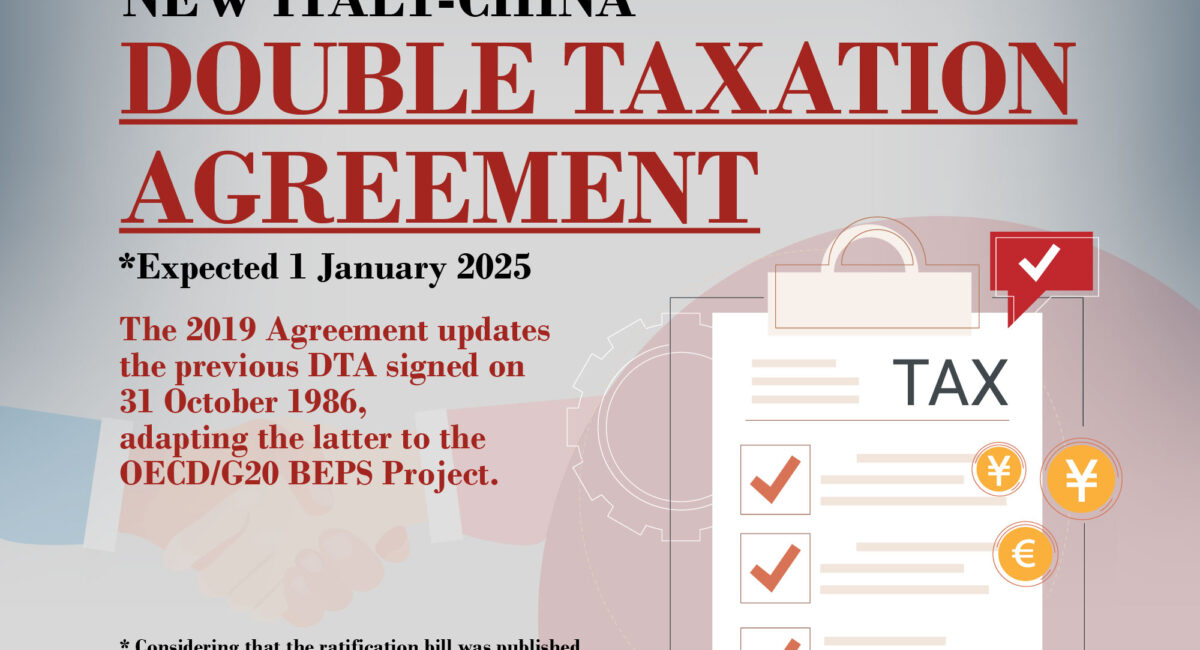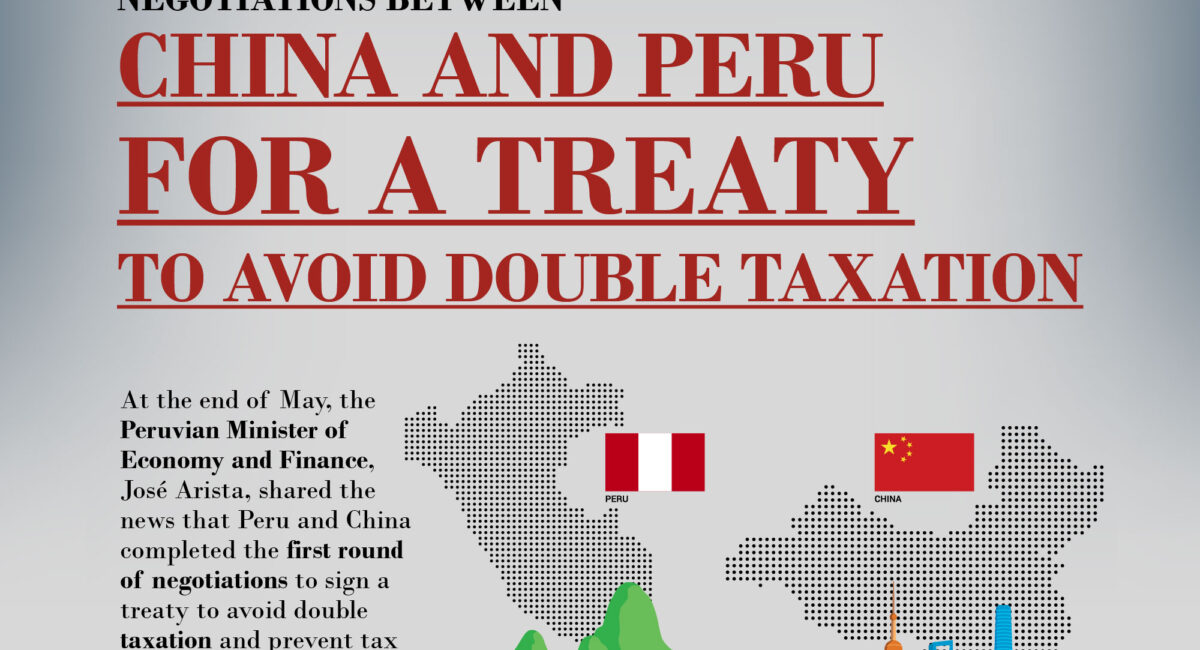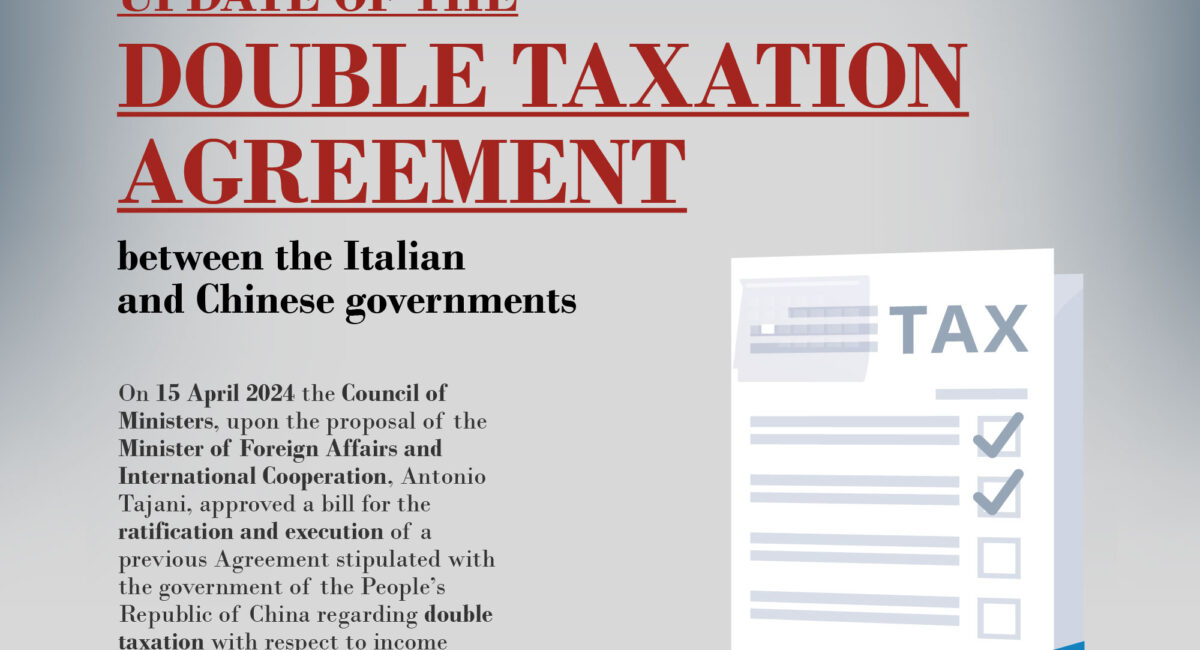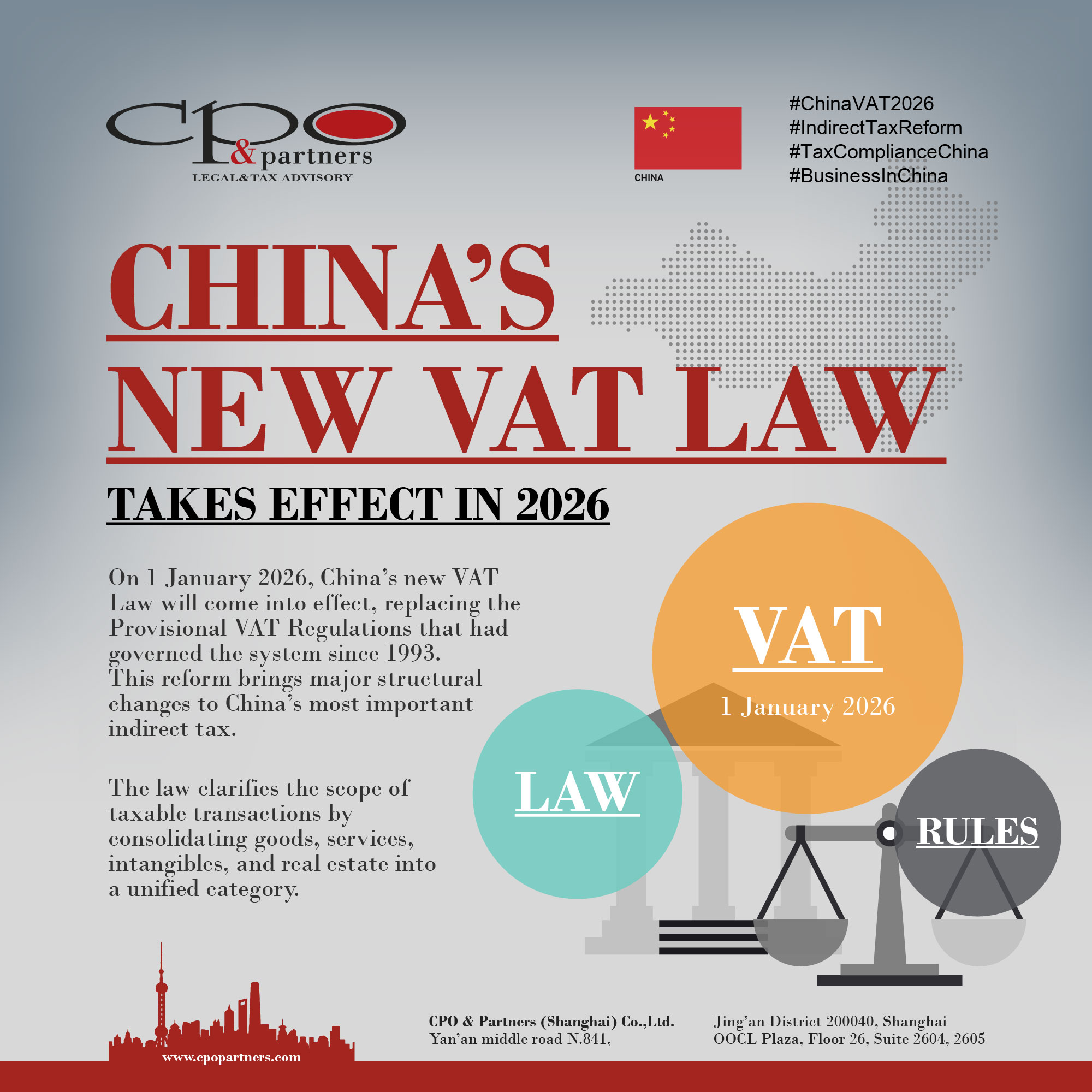
New legislation for China’s private sector economy
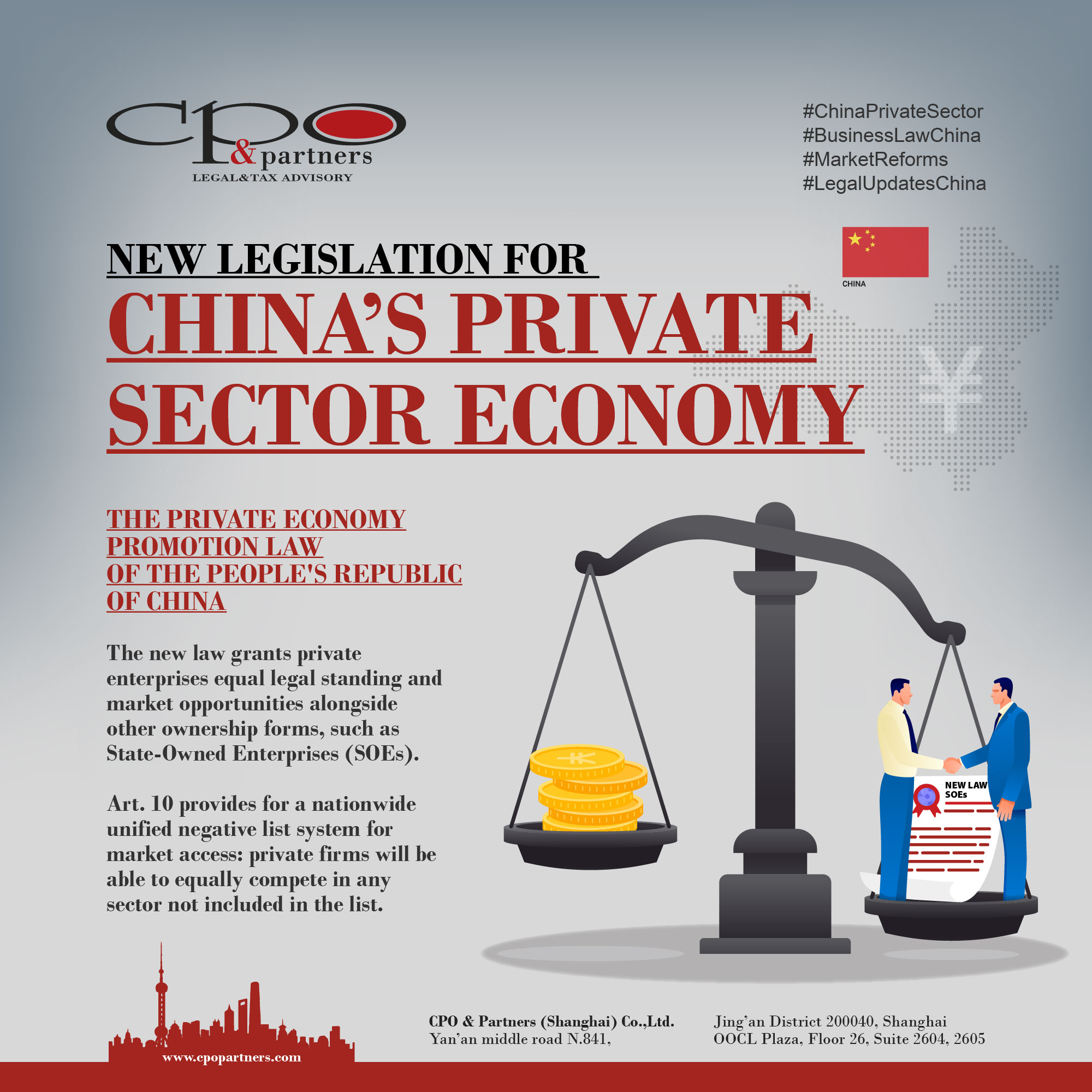
New legislation for China’s private sector economy
The Private Economy Promotion Law of the People’s Republic of China was adopted by the Standing Committee of the National People’s Congress on 30 April 2025, and took officially effect on 20 May.
The new law grants private enterprises equal legal standing and market opportunities alongside other ownership forms, such as State-Owned Enterprises (SOEs). The legislation acts in favor of fair competition practices for private firms, in terms of access to bidding, procurement etc. For example, Art. 10 provides for a nationwide unified negative list system for market access: private firms will be able to equally compete in any sector not included in the list.
Another important point is related to R&D schemes: private enterprises are encouraged to undertake major national science and technology projects, while entitled to receive from the state greater research infrastructure and data resources. The law also mandates government bodies and SOEs to honor payment obligations on schedule, with penalties for default.
Having faced for long-time discrimination and inequality of treatment compared to SOEs, private firms may find enhanced protection through the new legislation. However, as often occurs in the country, the actual safeguards offered by the law can only be evaluated against future enforcement mechanisms.
New tax rebate rates for exports from China
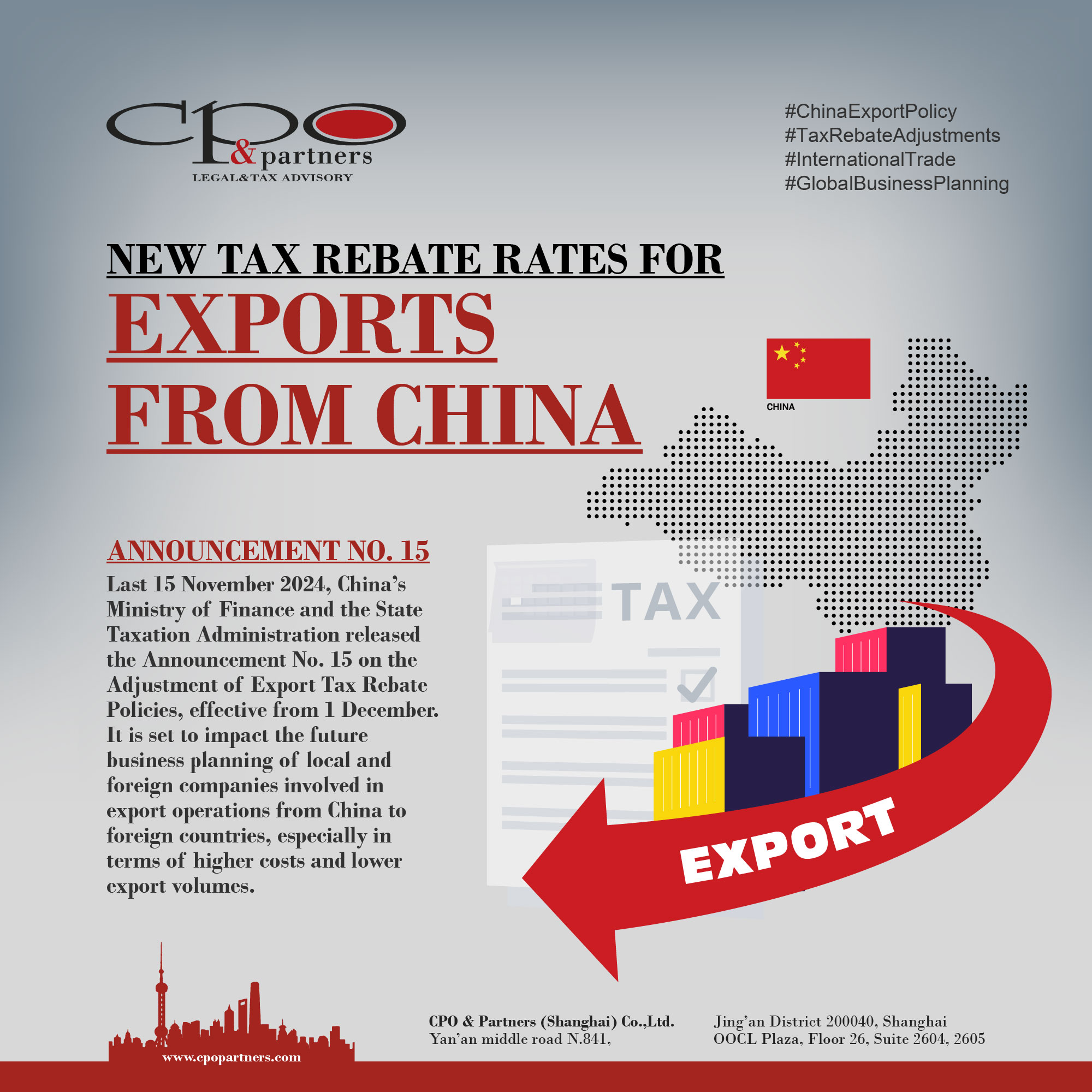
Last 15 November 2024, China’s Ministry of Finance and the State Taxation Administration released the Announcement No. 15 on the Adjustment of Export Tax Rebate Policies, effective from 1 December. It is set to impact the future business planning of local and foreign companies involved in export operations from China to foreign countries, especially in terms of higher costs and lower export volumes.
Two different sets of adjustments were introduced on China’s export tax rebate, incentive system started in 1985 through which refunds are given to exporters on VAT and consumption tax (CT) paid before the export of their products abroad. The first set provides for the cancellation of the tax rebate on 59 items, including copper and aluminium products (plates, sheets, bars etc.), chemically modified oils and fats, and other kinds of metals.
The second set includes a reduction of the VAT rebate rate from 13% (which entailed a full refund of VAT on purchases, being 13% in China) to 9% for 209 items. Refined oils, batteries, photovoltaic products are among the affected categories.
Seen since its inception as a strategic policy to improve the competitiveness of exported goods in the international market, the VAT Tax Rebate (出口退税) system allows exporters to recover VAT on goods intended for export, receiving the VAT paid on purchases (in full or in part, based on the specific VAT refund percentage defined for each customs code) directly into the company bank account, in a relatively short time (1-2 months) from the submission of the necessary documentation relating to export. The Tax Rebate system is applicable both to companies that carry out trading activities and to the manufacturing companies, with different application rules.
New Italy-China Double Taxation Agreement soon in force
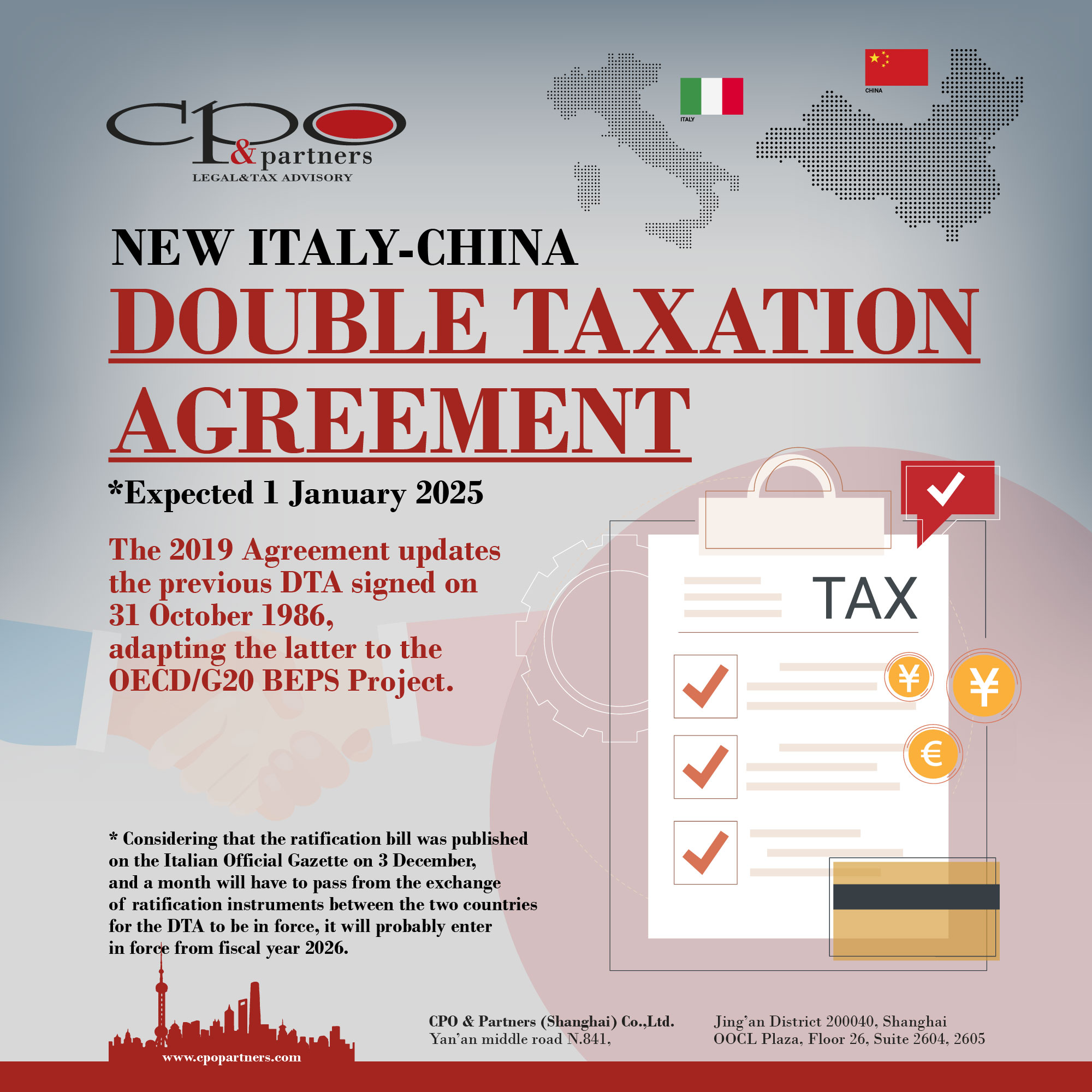
New Italy-China Double Taxation Agreement soon in force
On 5 November 2024, the Italian Chamber of Deputies approved the bill for the ratification and execution of the Double Taxation Agreement (DTA) signed in 2019 between the governments of the Italian Republic and the People’s Republic of China regarding income taxes double taxation and the prevention of tax evasion and avoidance. With the Meloni government taking office in October 2022, the bill had to obtain a new approval by the Italian Council of Ministers, and subsequently underwent Parliament discussion. The Agreement will enter into force following the exchange of ratification instruments between the contracting countries, expected by 1 January 2025.
The 2019 Agreement updates the previous DTA signed on 31 October 1986, adapting the latter to the OECD/G20 BEPS Project.
Among the revisions, Article 10 provides for a reduced withholding tax rate from 10% to 5% in relation to dividends from investments participated for at least 25% of the capital, and continuously for 365 days.
Article 11 regulates interests, providing for a reduction to 8% for interests paid to financial institutions for 3 years minimum duration loans aimed at investment projects.
Finally, Article 12 confirms a standard rate at 10% for royalties, with a reduction to 5% for royalties on industrial, commercial or scientific equipment.
Negotiations between China and Peru
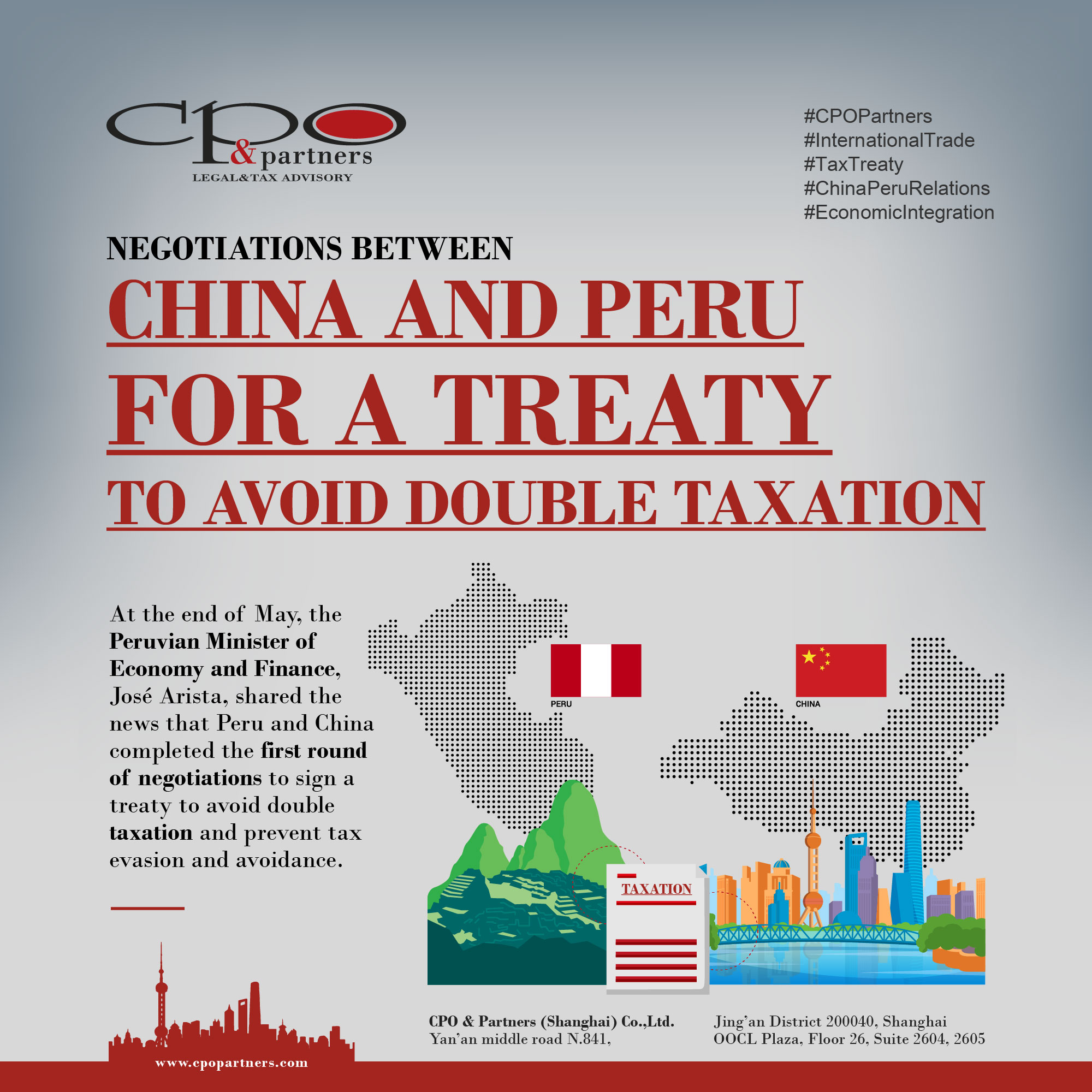
Negotiations between China and Peru for a Treaty to avoid double taxation
At the end of May, the Peruvian Minister of Economy and Finance, José Arista, shared the news that Peru and China completed the first round of negotiations to sign a treaty to avoid double taxation and prevent tax evasion and avoidance. A second round is expected to start in November of this year, which could lead to the final signing and ratification between the parties. The agreement will touch upon the fields of trade in goods and services and of investments, by reaching a greater integration between the respective economies. The planned treaty signals the importance of the Peruvian market for China, considering that the Asian nation is the first destination for Peru’s exports, for an amount of 23 billion dollars in 2023. In recent years, China has also been keen in investing in the country, especially in the mining, energy and transportation sectors. The new agreement will reinforce the legal institutional framework already existing between China and Peru, which signed a Free Trade Agreement in April 2009.
Update of the double taxation Agreement
